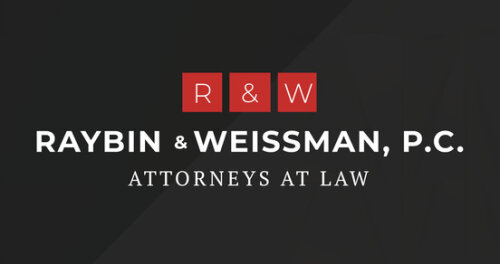Best Antitrust Litigation Lawyers in Nashville
Share your needs with us, get contacted by law firms.
Free. Takes 2 min.
List of the best lawyers in Nashville, United States
About Antitrust Litigation Law in Nashville, United States
Antitrust litigation covers legal disputes about unfair competition and restraints on trade. In the United States, federal antitrust laws are the primary foundation, including prohibitions on price-fixing, bid-rigging, monopolization, unlawful mergers, and other practices that restrain trade. Nashville, as part of the Middle District of Tennessee, handles both federal antitrust cases and state-law competition claims. Enforcement happens through multiple channels: federal agencies, state attorneys general, private businesses and consumers bringing civil suits, and criminal prosecutions brought by the U.S. Department of Justice when conduct is especially severe, such as naked price-fixing.
Why You May Need a Lawyer
Antitrust litigation is fact-intensive, technical, and procedurally complex. You may need a lawyer if you face any of the following situations:
- You suspect competitors are engaging in price-fixing, bid-rigging, or market allocation that harms your business or customers.
- You are a target of a government investigation by the Department of Justice or the Federal Trade Commission.
- Your company is involved in a merger or acquisition that may raise antitrust concerns and might require pre-merger filings or defense.
- You believe a dominant competitor is using exclusionary tactics to unlawfully foreclose your access to markets, suppliers, or customers.
- You received a civil demand letter, grand jury subpoena, or search warrant related to antitrust allegations.
- You are a purchaser or business harmed by alleged antitrust conduct and are considering a civil suit, including class action or private treble-damages claims.
In each of these situations, an antitrust lawyer can assess the facts, advise on enforcement risks, develop compliance and defense strategies, and represent you in litigation or negotiations.
Local Laws Overview
Key federal laws apply in Nashville and across Tennessee. Those laws include:
- Sherman Act: Prohibits agreements that unreasonably restrain trade and bans attempts to monopolize. It supports both criminal prosecutions and private civil suits.
- Clayton Act: Addresses mergers and acquisitions that may substantially lessen competition and provides the statutory basis for treble damages in private suits.
- Federal Trade Commission Act: Prohibits unfair methods of competition and unfair or deceptive acts or practices; enforced by the FTC, which brings civil cases and administrative actions.
Tennessee also enforces competition and consumer-protection laws at the state level. The Tennessee Attorney General enforces laws against unfair methods of competition and deceptive business practices and can bring civil actions or join multistate efforts. State courts may hear claims under Tennessee statutes and common-law theories such as breach of contract or tortious interference when those issues intersect with antitrust concerns.
Practical local considerations in Nashville and Middle Tennessee:
- Venue and forum: Federal antitrust claims typically proceed in the U.S. District Court for the Middle District of Tennessee when filed locally. State antitrust or consumer-protection claims are handled in Tennessee state courts, often in Davidson County for Nashville-based matters.
- Enforcement partners: Federal enforcement in Tennessee involves the U.S. Department of Justice Antitrust Division and the Federal Trade Commission for civil matters. The Tennessee Attorney General can investigate and sue on behalf of the public interest. Local U.S. Attorney offices may assist in criminal cases.
- Remedies: Remedies can include injunctive relief to stop anti-competitive conduct, divestiture or restructuring of transactions, civil monetary penalties, restitution, disgorgement, and treble damages in many private federal actions. Criminal penalties may include fines and imprisonment for individuals convicted of cartel offenses.
- Statutes of limitation and procedural rules: Federal private antitrust actions are subject to statutory limitation periods and tolling rules that can be complex. State claims have their own deadlines. Prompt consultation with counsel is key to preserving claims and defenses.
Frequently Asked Questions
What exactly is an antitrust violation?
An antitrust violation involves conduct that unreasonably restricts competition in a market. Common examples include horizontal price-fixing among competitors, bid-rigging, market allocation, monopolization by excluding rivals through unlawful means, and certain mergers or agreements that substantially lessen competition.
How do I know if I have a case against a competitor or supplier?
Look for concrete signs of anti-competitive behavior: identical pricing among competitors without explanation, sudden price increases following meetings among rivals, suspicious bid patterns in procurement, exclusive-dealing contracts that lock out competitors, or evidence that a dominant company used exclusionary tactics. An antitrust lawyer can evaluate internal documents, communications, pricing data, and market structure to determine the strength of a claim.
Can I bring a private antitrust lawsuit in Nashville?
Yes. Private parties harmed by antitrust violations can bring civil suits in federal court, and sometimes in state court under state law. Federal claims often seek treble damages and injunctive relief. Because statutes of limitation can be strict and complex, act promptly and consult counsel to preserve your rights.
What penalties could an individual or business face for violating antitrust laws?
Penalties vary. Corporations may face substantial fines and civil liability. Individuals involved in criminal cartel conduct can face criminal fines and imprisonment. Private plaintiffs may recover treble damages and attorney fees in many federal actions. Regulatory agencies can also seek injunctions and other equitable relief.
How do investigations by the DOJ or FTC typically work?
Investigations often begin with a complaint, a subpoena, civil investigative demands, dawn raids, or review of merger filings. The DOJ handles criminal enforcement and can bring criminal charges, while the FTC handles civil enforcement and administrative proceedings. Both agencies may coordinate with state attorneys general. If you receive a subpoena or investigatory demand, get counsel immediately to protect your rights and manage communications.
What is the corporate leniency program and how might it affect my situation?
The DOJ has a leniency program that can grant immunity to the first qualifying company to fully disclose a cartel and cooperate, often in exchange for avoiding criminal prosecution. There are strict conditions for eligibility. If you suspect cartel activity, do not destroy evidence and consult antitrust counsel right away to evaluate options and risks.
Can customers or consumers recover damages if they were overcharged?
Yes. End purchasers or indirect purchasers may have the right to seek damages in certain cases, sometimes through class actions. The availability of damages for indirect purchasers depends on state law and federal precedent. A lawyer can advise whether a consumer or business has a viable claim and whether pursuing an individual suit or joining a class action makes sense.
How long does antitrust litigation usually take?
Antitrust cases are often lengthy because of complex economic evidence, expert witnesses, and extensive discovery. A typical case can take several years from filing to resolution, though early settlement is common in many matters. Criminal investigations and prosecutions can also be protracted.
What should I do immediately if I receive a subpoena or a civil demand related to antitrust issues?
Preserve all potentially relevant documents and communications. Do not alter or destroy evidence. Limit internal discussions about the issue to necessary personnel and do not publicly discuss the matter. Contact an experienced antitrust attorney immediately to respond appropriately, negotiate scope, and protect privilege where applicable.
How do I choose the right antitrust lawyer in Nashville?
Look for attorneys or firms with specific experience in antitrust litigation, knowledge of both federal and Tennessee law, courtroom experience in the Middle District of Tennessee, and a track record in the relevant industry or type of conduct. Ask about fee structures, previous results, proposed strategies, and how the lawyer will coordinate with economists, industry experts, and local counsel if needed.
Additional Resources
When you need more information or assistance, the following institutions and organizations can be helpful:
- U.S. Department of Justice Antitrust Division - enforces federal criminal and civil antitrust laws and administers leniency programs.
- Federal Trade Commission Bureau of Competition - enforces civil antitrust law and reviews mergers.
- Tennessee Attorney General's Office - enforces state consumer-protection and competition laws and may handle county-level investigations.
- U.S. District Court for the Middle District of Tennessee - federal court that handles antitrust cases filed in the Nashville region.
- Nashville Bar Association and Tennessee Bar Association - local lawyer directories and referral services can help you find qualified antitrust counsel.
- American Bar Association Antitrust Law Section - provides resources, practice guides, and publications about antitrust law.
Next Steps
If you believe you are involved in an antitrust issue or need legal assistance, follow these practical steps:
- Preserve evidence: Immediately preserve emails, documents, pricing records, bidding data, board minutes, and other relevant materials. Avoid altering or deleting files.
- Limit communications: Restrict internal discussions about the matter to essential personnel and do not discuss the issue publicly or on social media.
- Compile a timeline: Create a clear chronology of events, meetings, transactions, and communications that might be relevant to the dispute.
- Seek counsel: Contact an antitrust lawyer with experience in Nashville and federal practice. An initial consultation can clarify deadlines, potential claims or defenses, and investigation risks.
- Consider enforcement options: Your lawyer will advise whether to pursue a private civil suit, negotiate a settlement, cooperate with government investigators, or respond defensively to an enforcement action.
- Understand costs and remedies: Antitrust litigation can be expensive and complex. Discuss fee arrangements, potential fee-shifting, damages, and the likelihood of injunctive relief or criminal exposure if you or your business are under investigation.
Antitrust matters raise serious legal and economic questions that affect businesses and consumers. Quick, informed steps and experienced local counsel can protect your rights and position you to achieve the best possible outcome.
Note: This guide provides general information and does not constitute legal advice. For guidance specific to your situation, consult a qualified antitrust attorney in Nashville.
Lawzana helps you find the best lawyers and law firms in Nashville through a curated and pre-screened list of qualified legal professionals. Our platform offers rankings and detailed profiles of attorneys and law firms, allowing you to compare based on practice areas, including Antitrust Litigation, experience, and client feedback.
Each profile includes a description of the firm's areas of practice, client reviews, team members and partners, year of establishment, spoken languages, office locations, contact information, social media presence, and any published articles or resources. Most firms on our platform speak English and are experienced in both local and international legal matters.
Get a quote from top-rated law firms in Nashville, United States — quickly, securely, and without unnecessary hassle.
Disclaimer:
The information provided on this page is for general informational purposes only and does not constitute legal advice. While we strive to ensure the accuracy and relevance of the content, legal information may change over time, and interpretations of the law can vary. You should always consult with a qualified legal professional for advice specific to your situation.
We disclaim all liability for actions taken or not taken based on the content of this page. If you believe any information is incorrect or outdated, please contact us, and we will review and update it where appropriate.









